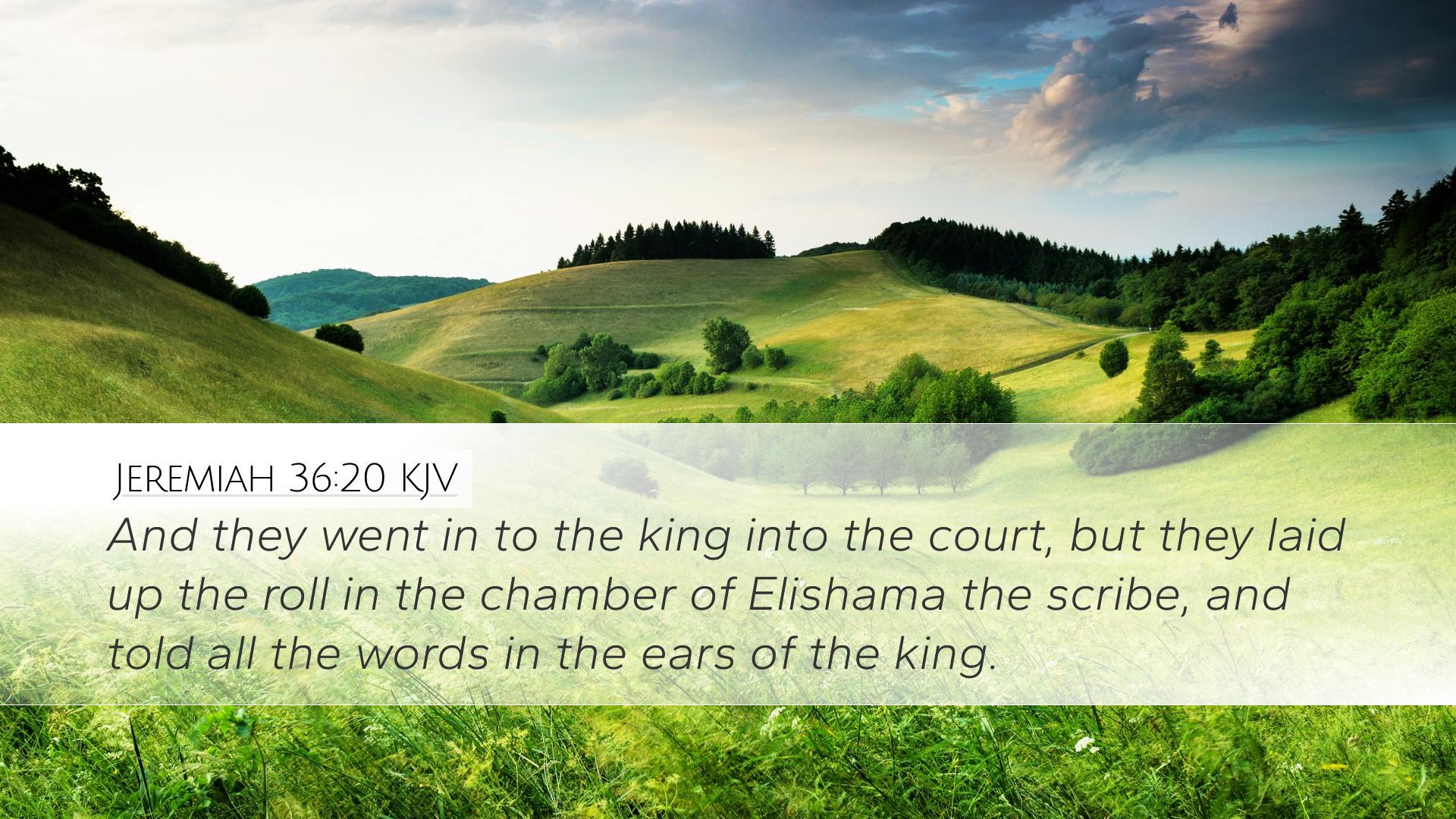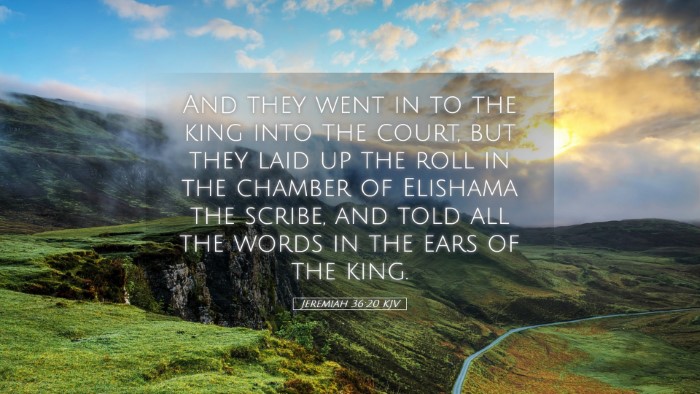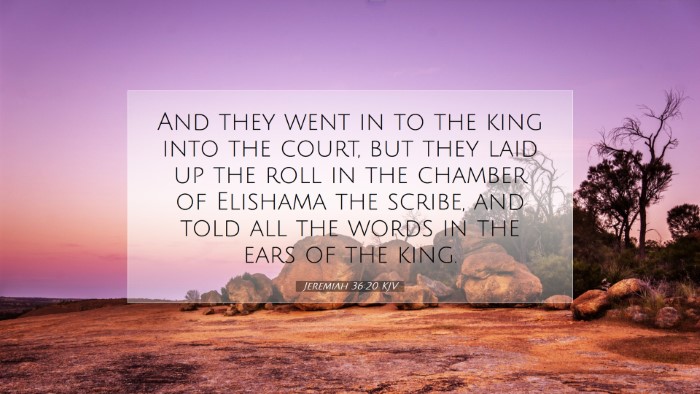Commentary on Jeremiah 36:20
Text of Jeremiah 36:20: "And they went in to the king into the court, but they laid up the roll in the chamber of Elishama the scribe, and told all the words of the roll in the ears of the king."
Introduction
This verse serves as a pivotal moment in the narrative of Jeremiah, demonstrating both the reception of God’s word and the dynamics of authority and revelation in ancient Israel. The intricacies of this passage highlight the interplay between divine inspiration, prophetic revelation, and human response, making it significant for various audiences including pastors, students, theologians, and Bible scholars.
Contextual Background
The events surrounding Jeremiah 36 unfold during a tumultuous time in Judea, where the leadership of King Jehoiakim poses significant challenges to the prophetic voices like Jeremiah. This chapter is critical in presenting the prophetic warnings encapsulated in the scroll, which Jeremiah dictated to Baruch, emphasizing the urgency of repentance and the impending judgment of God.
Analysis of Key Components
1. The Role of Baruch
Baruch, as Jeremiah's scribe, plays a crucial role in this narrative. His obedience to Jeremiah's instructions to write down the words of prophecy signifies the importance of recording divine revelation. Matthew Henry remarks on Baruch's faithfulness, portraying him as a diligent servant who carries the weight of God’s words to those in power.
2. The King's Chamber
The choice to lay the scroll in the chamber of Elishama the scribe is not merely logistical. Albert Barnes notes that the chamber represents the governance of the word within the king's court. This highlights the relationship of authority between God's word and earthly power, suggesting that the written word has both a place and a purpose within human authority structures.
3. The Importance of Speaking Truth to Power
When the messengers report the contents of the scroll to the king, it reflects the vital act of speaking truth to power. This act serves as a reminder, especially for pastors and leaders, of the responsibility to uphold the truth of God’s message in the face of prevailing political climates. Adam Clarke underlines this aspect by emphasizing the necessity of boldness in prophetic ministry, even when confronting kings.
Theological Implications
1. Divine Sovereignty and Human Agency
This passage powerfully illustrates the tension between divine sovereignty and human agency. God’s choice to reveal His will through the prophetic message underscores His ultimate authority, while the actions of Baruch and the other characters indicate human involvement in the dissemination of His word. This theme is critical for theological discourse, as it leads to deeper discussions about how God operates in the world through human instruments.
2. The Nature of Scripture
Jeremiah 36:20 gives insight into how sacred texts were treated and revered. By placing the scroll in a scribe's chamber, we see an early example of the care taken in preserving God’s word. This raises questions about the formation of the Scriptures and their role in the religious life of Israel, encouraging scholars to further explore the nature and reverence for holy texts.
3. The Response of Authority to Prophecy
The king's response—or the lack thereof—to the scroll is telling of the broader reception of God's word. It invites reflection on how contemporary societies, including church leadership, respond to the prophetic calls of scripture today. The contrast between the king's indifference and the urgency of the message challenges both leaders and laity to examine their own hearts toward God’s revelations.
Lessons for Today
1. The Necessity of Obedience
For current pastors and students of the Bible, the actions of Baruch serve as a compelling example of obedience. In a world that often rejects truth, the calling remains to faithfully proclaim the message entrusted to them, regardless of the audience's receptivity.
2. Holding Accountable Leadership
This narrative serves as a reminder to hold leaders accountable to God’s truth. Those in authority today must lead with the understanding that their decisions hold weight in the spiritual realm, encouraging a culture of transparency and humility in spiritual leadership.
Conclusion
Jeremiah 36:20 encapsulates significant themes of prophecy, authority, and the enduring relevance of God's Word. The insights from public domain commentaries by Matthew Henry, Albert Barnes, and Adam Clarke collectively illuminate these themes, encouraging ongoing reflection and application among pastors, students, and theologians. As we navigate the complexities of ministry and faith in contemporary society, this verse affirms our commitment to the truths found in Scripture and prompts us to boldly communicate them in every aspect of our lives.


